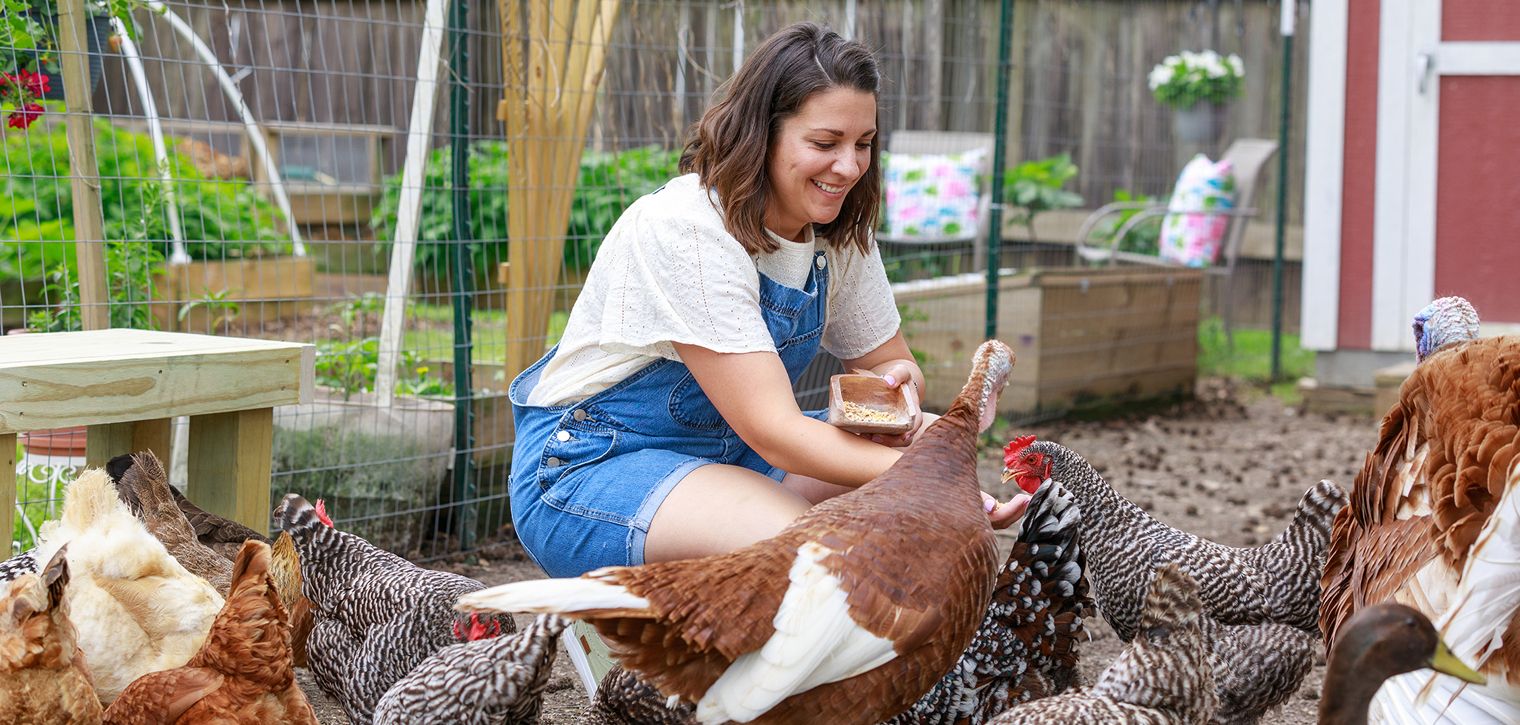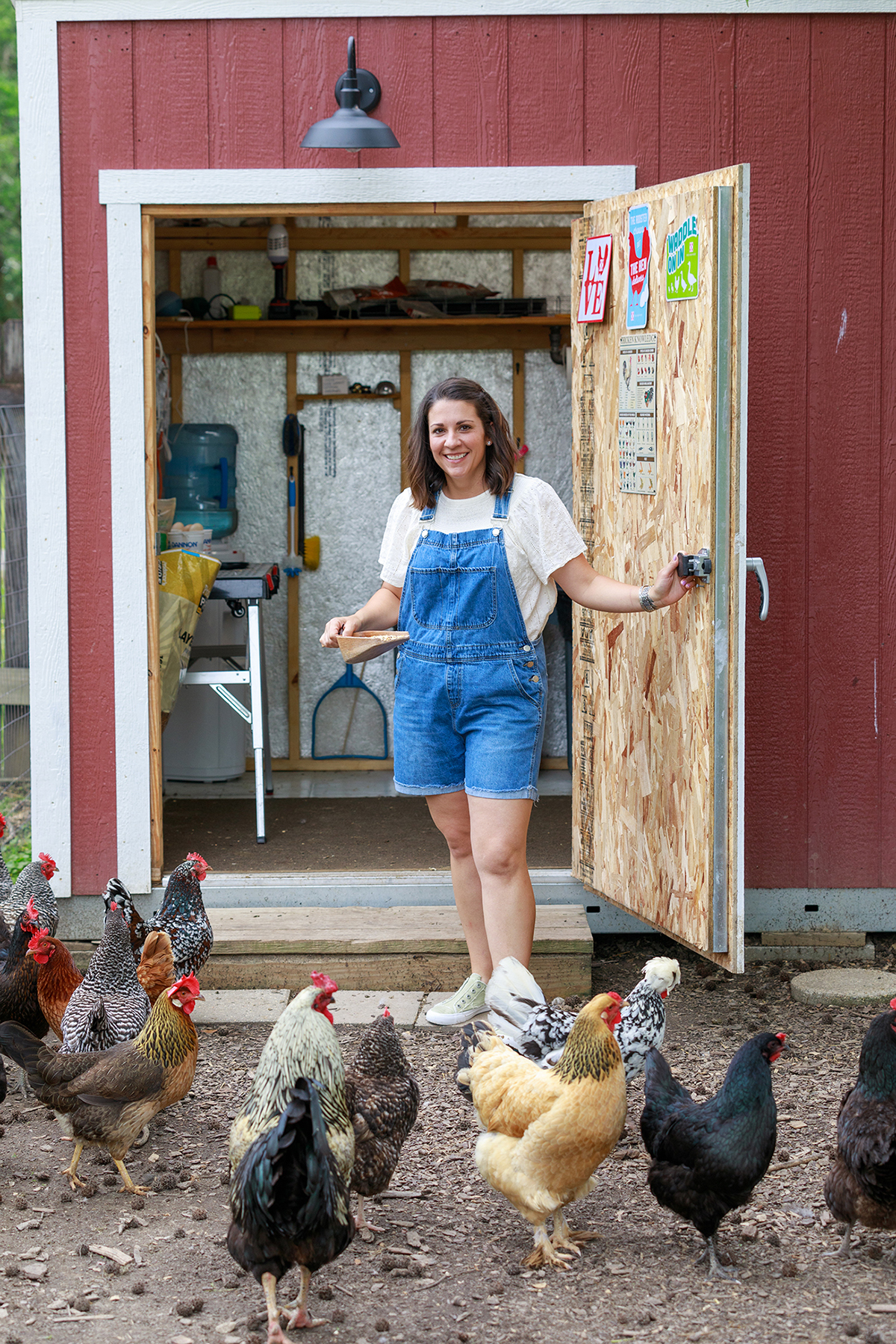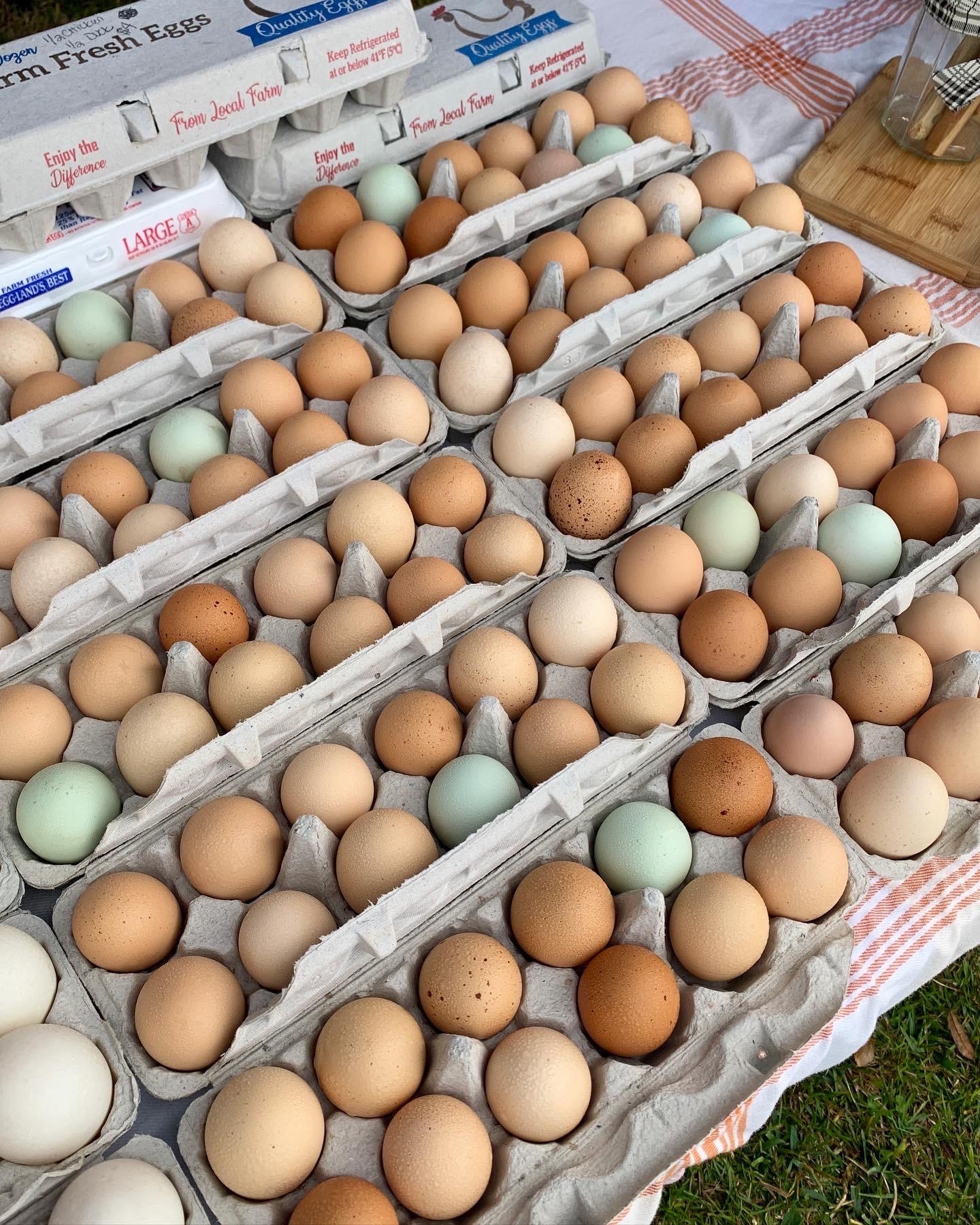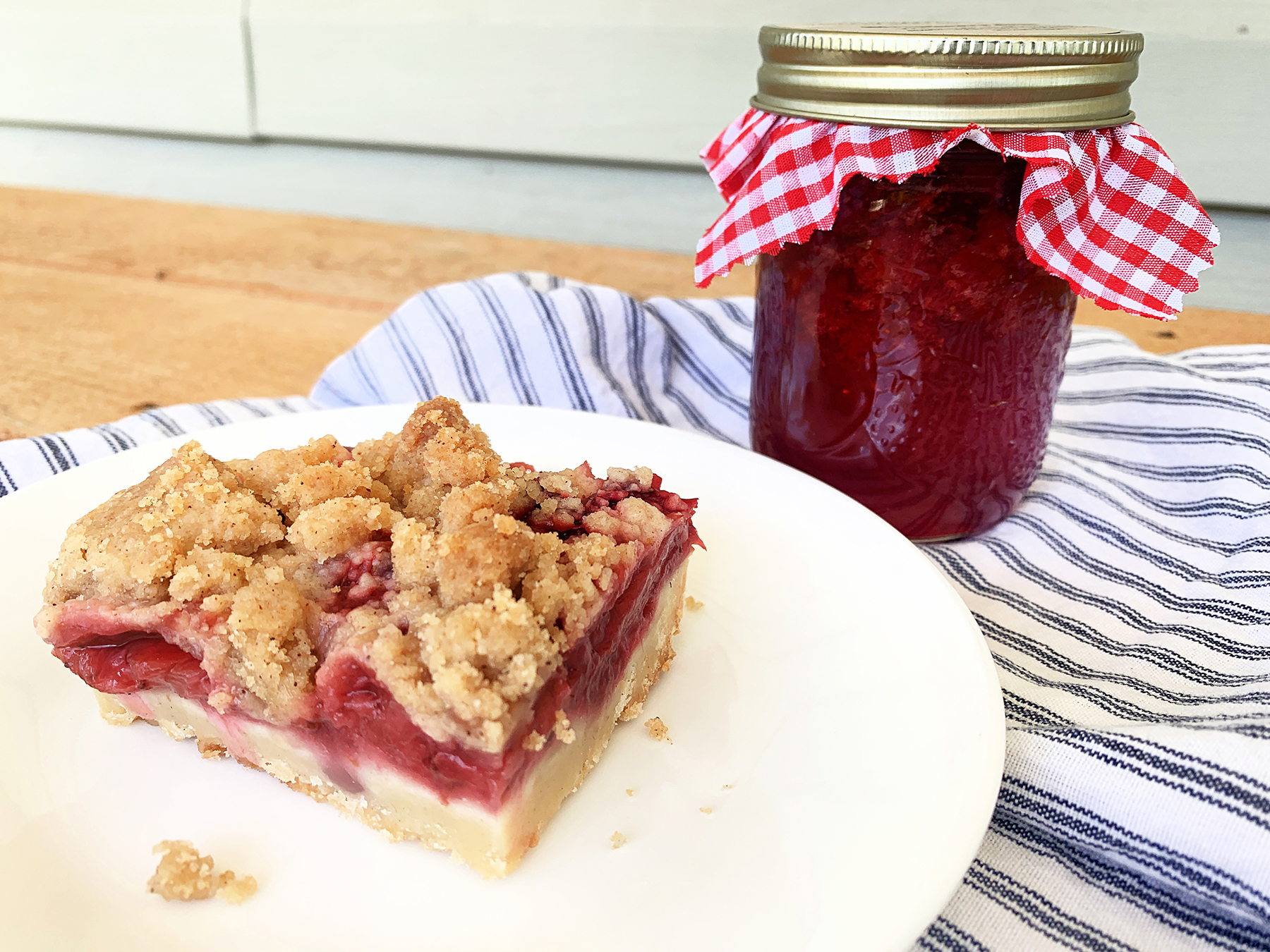
Sara Brown of Brown Family Goods finds a country lifestyle not far from the city
Sara Brown does not live on a sprawling ranch far from the cry of civilization. No rolling fields surround her home in Ascension Parish, the one she shares with her husband and the teenagers who flit in and out the front door. No tractor-tilled rows of soil grow the strawberries and vegetables that rest on her kitchen table, prepped for preserving, and the eggs she gathers will just as often be found under the tomato vines as on the inside of the mobile coop. Still, the three acres of green grass and garden boxes have, for the last four years since the Memphis native’s move from Houston, provided ample territory for the 100 chickens pecking around the yard. The ducks, too, have never complained, nor have the geese, or even the turkeys, whose eagerness to approach strangers marks them as the newest members of the Brown family farm. Throw in three Great Danes, one maltipoo, a cat and a never-ending supply of chicks darting between dahlias and ranunculus, and the sensory kaleidoscope convenes into a neighborhood homestead bustling with possibility.
In our modern world of grocery runs and microwavable meals, a lifestyle like the one perpetuated by Brown Family Goods—her homespun brand of jams, preserves, poultry products, sourdough bread and more—may seem like a fringe interest. But for the vast majority of human history, most of our ancestors also lived on the bounty of their own backyards, or at least purchased what they needed from merchants like those at Prairieville’s Riverside Farmers Market, where Brown can be found most Saturdays. This style of old-school seasonal living, that is, never really went away. And we may have modern technology to thank for its resurgence.

“There’s such a disconnect these days in terms of knowing where our food comes from,” says Brown, who first began sharing glimpses of her animals, “scratch kitchen” recipes and other farm-life hacks on her Ordinary Heirloom Life blog and Instagram, topics now largely relegated under the Brown Family Goods name. “Waiting three months for a head of broccoli to grow really opens your eyes to what it takes to produce food and why it’s important, or even special. There’s so much satisfaction in sitting down to a meal that you have produced.”
This home isn’t all sugar and spice, though. In addition to canning seasonal jams for sweet treats in winter, baking strawberry crumb bars, and building trellises and garden boxes for fellow aspiring “farm-fluencers,” Brown and her husband Allan also butcher their pasture-raised chickens themselves, seasoning and packaging the meat for family and friends.
“Emotionally, it’s not easy to do,” she says, “but it allows us to take some control over what we’re consuming, and encourages us to raise our chickens well. It also gives you a sense of confidence knowing that you really could provide for yourself and your family without having to rely on food shipped from halfway across the country.”

Not that Brown considers herself an extremist or an activist in the way she maintains her miniature farm; she’ll be the first to admit that she spends just as much time grocery shopping as anyone else. She recognizes, too, that the labor required to raise animals and package goods can sometimes amount to grueling work. But thanks to the support of the surrounding community, Brown considers herself lucky to be able to spend her working hours snuggling chicks and tending her gardens, sharing photos of her progress along the way.
“When you take these things you’ve made to the farmers market and see people being excited and grateful to have things like fresh eggs, you really see the value in what you do,” she says. “To hear that somebody noticed the difference in the flavor of our meat or appreciated the time we spent fermenting the sourdough—it just energizes you and makes you want to be more creative.”
Creativity, after all, plays a large role in the fruits of Brown’s manual labor, and not just because it provides a constantly evolving stream of online content. Harvesting crops on a seasonal basis means that she must act fast to find uses for them, experimenting with new recipes while whipping up limited-edition holiday treats like hot cross buns for Lent.

“People ask me all the time: Why would you do all this? There certainly are easier ways to do a lot of these things. And they’re right,” she says. “It’s just that the process of making all this means a lot to me. I don’t need to grow this food to survive, and these days it’s not really natural for us to have to get our hands dirty, but I think that people would gain such a benefit from it—even by starting small with some herbs in a pot.”
In the end, Sara says that the joy of Brown Family Goods arises from the self-fulfillment that comes from learning along the way. That, and a good old-fashioned sense of wonder.
“A lot of people are afraid to start, whether from fear of failure or fear of the unknown,” she says. “But I was also once someone who jumped right in to try something new. And now, to see how much you can get back from the work you give—there’s just such a sense of pride that makes it all worthwhile.”











